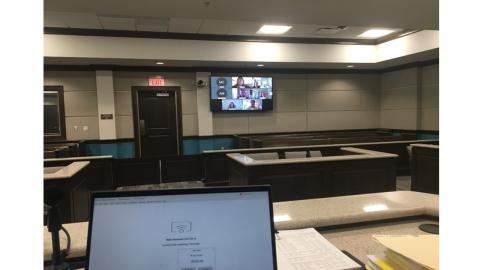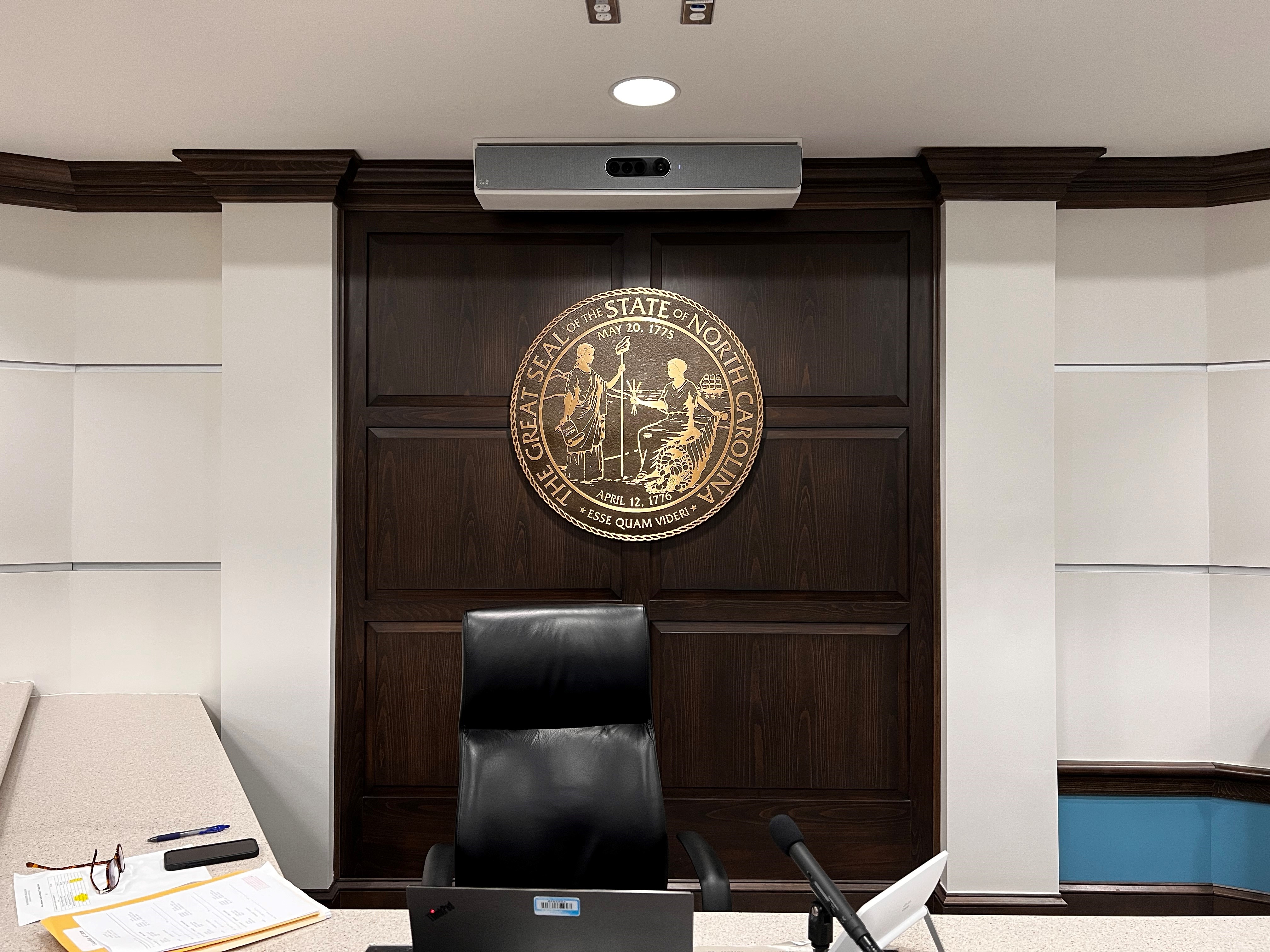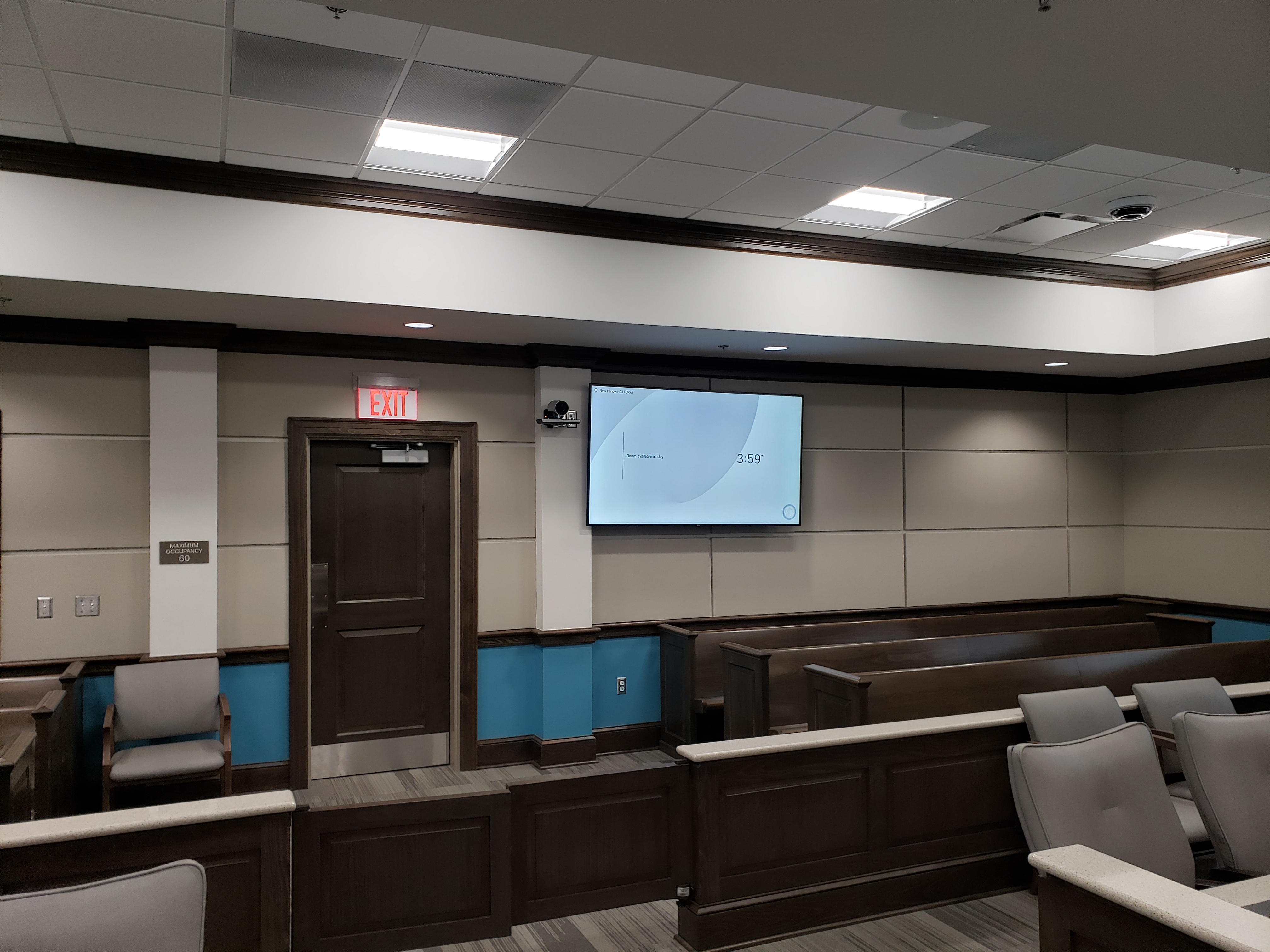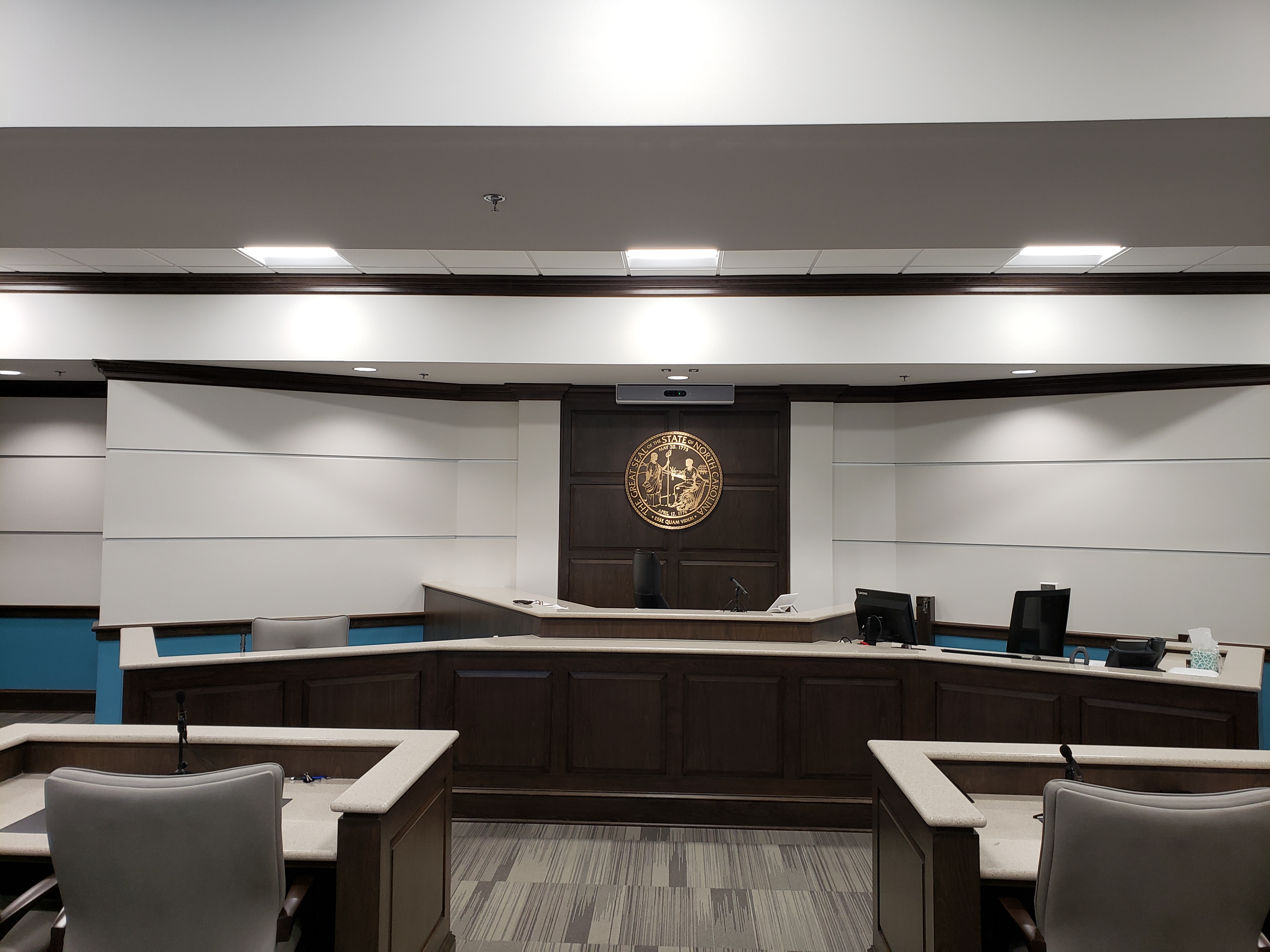Judicial Branch Launches Courtroom Audio Visual (CRAVE) Project to Safely and Securely Hold Remote Court Proceedings
Article contents

The North Carolina Judicial Branch has launched the Courtroom Audio Visual (CRAVE) Project to further enhance the capability to safely and securely hold remote court proceedings
"The Cabarrus County Courthouse community is grateful to be included in the CRAVE Project and for Chief Justice Newby’s leadership in modernizing our court system," said Cabarrus County Senior Resident Superior Court Judge Martin B. (Marty) McGee. "The new equipment is an essential building block needed to expand our remote proceedings capabilities. Being able to use remote technology to advise a defendant in another county or to allow a crime victim to participate in a sentencing hearing from another state will make our courts safer, more efficient, and more accessible."
The immersive courtroom audio video infrastructure inside the courtroom includes numerous cameras, microphones, and monitors. A public kiosk located in the courthouse is connected with the system and allows self-represented litigants to make an appearance outside of a courtroom. The technology will greatly reduce the need for an in-person appearance in some cases and reduce courthouse foot traffic.
The new system is currently being used in Brunswick, Cabarrus, New Hanover, and Perquimans counties and is scheduled to roll out in four additional counties in the coming weeks. The CRAVE project is scheduled for implementation in all 100 counties by the second quarter of 2023.
"As our jail is 21 miles away from the courthouse, this system will allow for certain hearings to be conducted remotely resulting in increased safety and security of the public at the courthouse, less opportunity for inmate escapes, as well as a tremendous cost savings to the county in transportation expense," said Perquimans County Clerk of Superior Court Todd Tilley.
"I’ve used CRAVE for almost a year and the experience has been transformative. Fully remote hearings have a quality I’ve never experienced before", said New Hanover county Chief District Court Judge Julius H. Corpening." Judge Corpening said blended hearings have none of the issues with feedback caused by multiple devices that he experienced early on in COVID. "More importantly, parent participation in my child welfare caseload is at an all-time high. Parents can take a break at work instead of taking a day and losing the income or the job they need so desperately. Family members who live some distance away don’t have to travel," Corpening said. Judge Corpening said he is able to include DAC inmates remotely without issuing writs and putting inmates on the road. Using the Cisco Deskpro, he says he has been able to offer a connection for parents without phones or computers to connect even though our hearings are remote. "I’ve had child victims participate on the Deskpro during in-person hearings so that they did not have to be in the courtroom. And I’ve had attorneys and parties participate remotely from locations like Norway, Ireland, Maine, New York, and so many others," said Corpening. In a year, Judge Corpening remarked that he has "not had a single equipment issue and that the audio-visual experience is dramatically improved for all participants from the hearings I ran from my laptop for almost a year. I can’t wait for my two counties to have the opportunity to purchase additional sets for other courtrooms."


